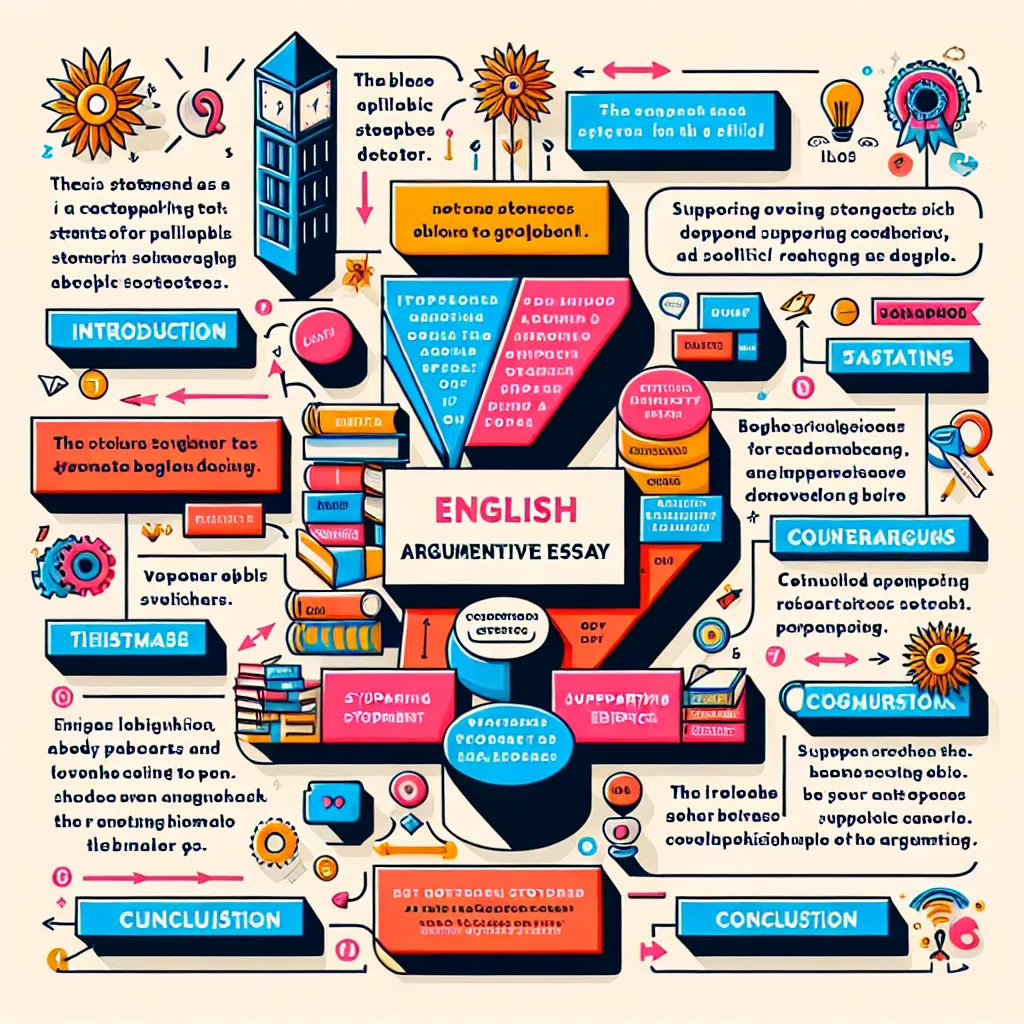Argumentative writing is a crucial skill for academic success and effective communication in English. Whether you’re preparing for IELTS, TOEFL, or simply aiming to enhance your persuasive writing abilities, mastering the art of argumentative writing in English is essential. This article will provide you with valuable tips and strategies to improve your argumentative writing skills and help you construct compelling arguments in English.
Understanding Argumentative Writing in English
Argumentative writing is a form of essay writing where the author presents a position on a topic and supports it with evidence and reasoning. In English, this style of writing requires clear thinking, logical organization, and persuasive language use. Mastering argumentative writing is crucial for academic success, professional communication, and effective participation in debates and discussions.
 English argumentative writing
English argumentative writing
The Importance of Argumentative Writing Skills
- Academic Success: Many English language tests and academic assignments require argumentative writing skills.
- Critical Thinking: It enhances your ability to analyze complex issues and form logical arguments.
- Persuasive Communication: These skills are valuable in professional settings for presenting ideas and influencing decisions.
- Global Discourse: Argumentative writing enables participation in international debates and discussions.
Key Tips for Mastering English in Argumentative Writing
1. Develop a Strong Thesis Statement
Your thesis statement is the foundation of your argument. It should clearly state your position on the topic and provide a roadmap for your essay.
Tips for crafting a strong thesis:
- Be specific and focused
- Make it debatable
- Keep it concise (usually one or two sentences)
Example: “While social media has revolutionized communication, its negative impacts on mental health and privacy outweigh its benefits, necessitating stricter regulations.”
2. Use Clear and Logical Structure
Organize your essay with a clear introduction, body paragraphs, and conclusion. Each paragraph should focus on a single main idea that supports your thesis.
Structure tips:
- Use topic sentences to introduce each paragraph’s main idea
- Provide evidence and examples to support your claims
- Use transition words to connect ideas (e.g., however, furthermore, consequently)
3. Incorporate Strong Evidence
Support your arguments with credible evidence from reliable sources. This can include statistics, expert opinions, and real-world examples.
Evidence tips:
- Use a variety of sources (academic journals, reputable news outlets, expert interviews)
- Cite sources correctly using the appropriate citation style (APA, MLA, etc.)
- Explain how the evidence supports your argument
4. Address Counterarguments
Acknowledge and refute opposing viewpoints to strengthen your argument and demonstrate critical thinking.
Counterargument tips:
- Present the opposing view fairly and accurately
- Explain why your argument is more valid or important
- Use phrases like “While some may argue…” or “Critics might claim…”
5. Enhance Your Vocabulary
A rich vocabulary allows you to express your ideas more precisely and persuasively.
Vocabulary tips:
- Learn and use academic vocabulary specific to argumentative writing
- Incorporate transitional phrases (e.g., “In contrast,” “Moreover,” “Consequently”)
- Use strong verbs and avoid overused words
For more strategies on expanding your English vocabulary, check out our article on advanced English learning tips.
6. Master English Sentence Connectors
Sentence connectors help create a smooth flow of ideas and enhance the overall coherence of your writing.
Tips for using connectors:
- Use a variety of connectors (e.g., “However,” “Furthermore,” “In addition”)
- Ensure the connector matches the relationship between ideas
- Don’t overuse connectors; let some sentences stand alone for emphasis
To dive deeper into this topic, read our comprehensive guide on strategies for mastering English sentence connectors.
7. Practice Active Voice
Using active voice makes your writing more direct and engaging. It helps clarify who is performing the action and adds strength to your arguments.
Active voice examples:
- Passive: “The policy was implemented by the government.”
- Active: “The government implemented the policy.”
8. Revise and Edit Thoroughly
Careful revision is crucial for polishing your argumentative writing.
Revision tips:
- Check for logical flow and coherence
- Ensure each paragraph supports your thesis
- Eliminate redundancy and irrelevant information
- Proofread for grammar, spelling, and punctuation errors
 English essay editing
English essay editing
Common Pitfalls to Avoid in English Argumentative Writing
- Emotional language: Stick to logical reasoning and evidence rather than emotional appeals.
- Overgeneralization: Avoid sweeping statements; use qualifiers when necessary.
- Weak thesis: Ensure your thesis is specific, debatable, and supported throughout the essay.
- Ignoring counterarguments: Addressing opposing views strengthens your argument.
- Plagiarism: Always cite your sources properly to avoid academic dishonesty.
Next Steps for Improving Your Argumentative Writing
- Read sample argumentative essays in English to analyze their structure and style.
- Practice writing argumentative essays on various topics regularly.
- Seek feedback from teachers, peers, or writing tutors.
- Participate in debates or discussion forums to practice forming and defending arguments orally.
- Consider taking an online course focused on argumentative writing in English.
For additional guidance on preparing for English language tests that include argumentative writing sections, explore our tips for English tests.
Conclusion
Mastering English in argumentative writing is a valuable skill that can significantly enhance your academic and professional success. By following these tips and strategies, you can improve your ability to construct compelling arguments, express your ideas clearly, and persuade your readers effectively. Remember, like any skill, argumentative writing improves with practice. Keep writing, seek feedback, and continuously refine your techniques to become a proficient argumentative writer in English.
We encourage you to share your experiences with argumentative writing in the comments below. What challenges have you faced, and what strategies have you found most helpful? Your insights could be valuable to other learners on their journey to mastering English argumentative writing.




